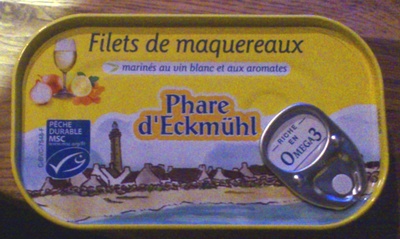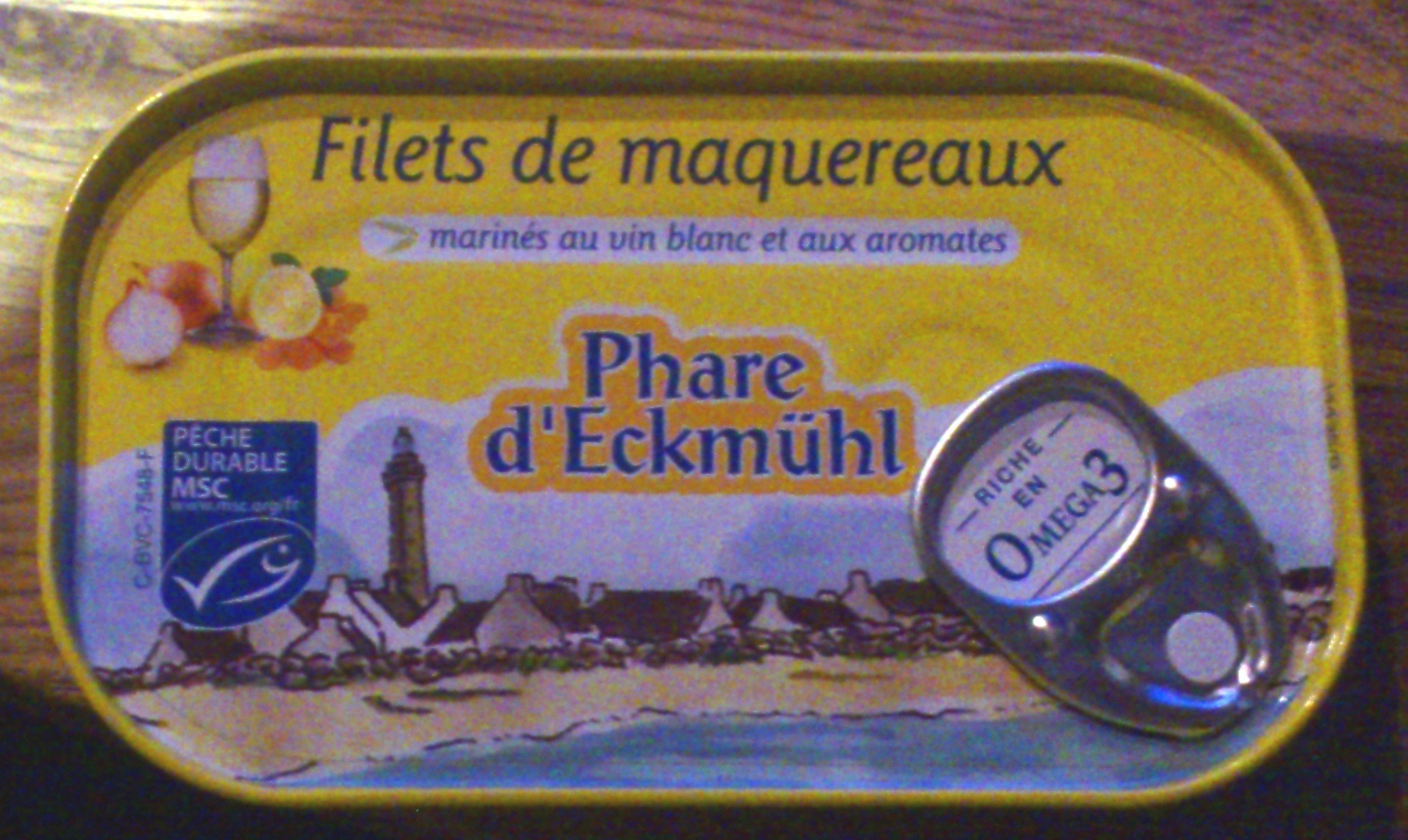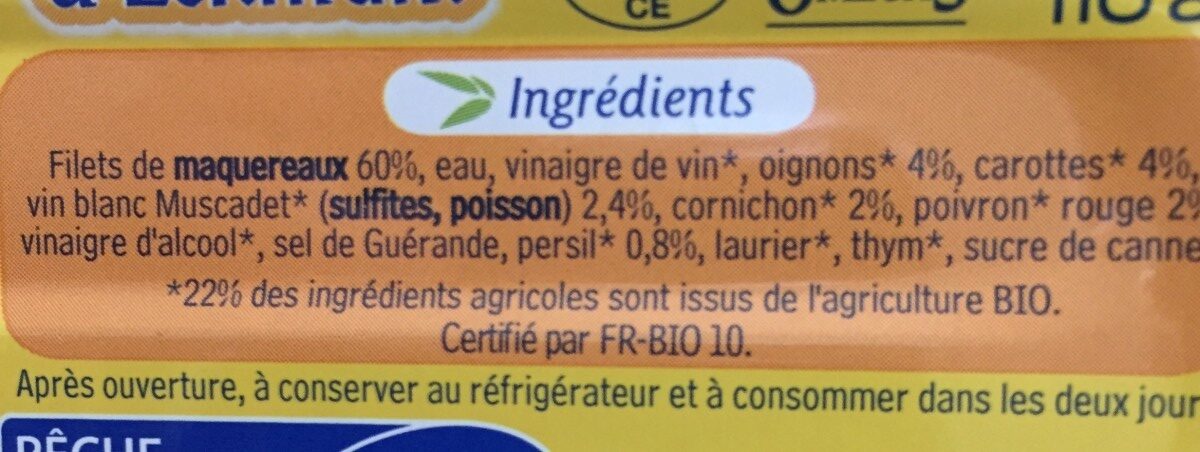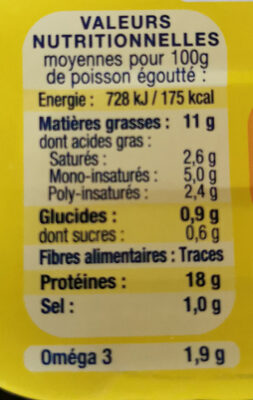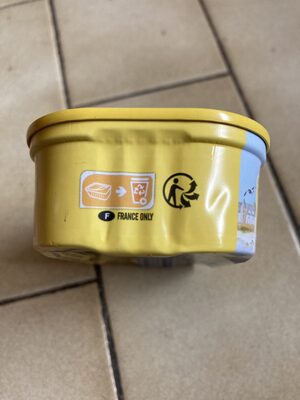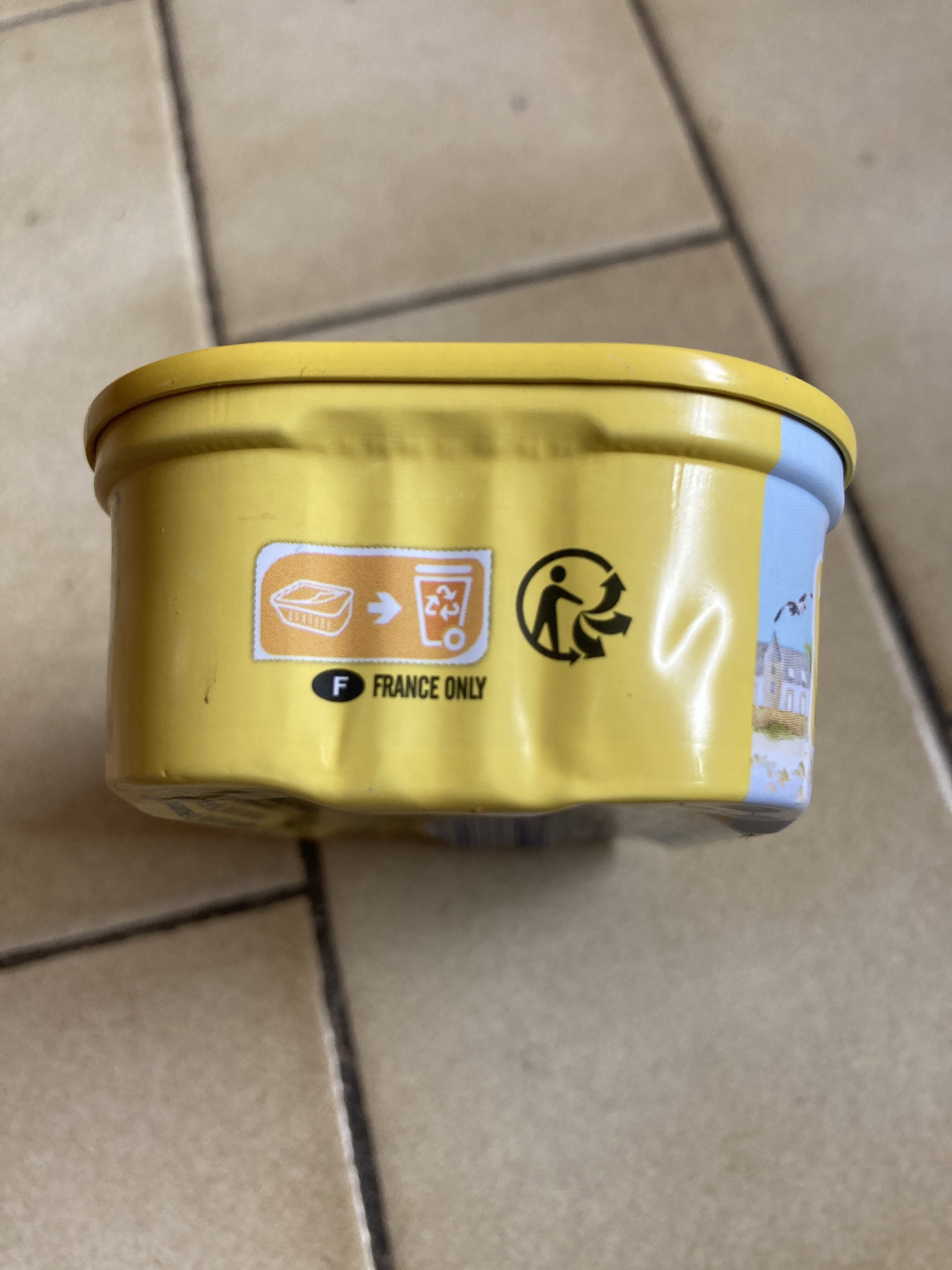Filets de maquereaux marinés au vin blanc et aux aromates - Phare d'Eckmühl - 118 g
Barcode: 3263670237818 (EAN / EAN-13)
Common name: Maquereaux en conserve
Quantity: 118 g
Brands: Phare d'Eckmühl
Categories: Seafood, Fishes and their products, Canned foods, Fishes, Fatty fishes, Canned fishes, Fish fillets, Mackerels, Mackerel fillets, Mackerel fillets in white wine and herbs, Tinned Mackerels, fr:Maquereaux au vin blanc
Labels, certifications, awards:
Sustainable, Organic, Sustainable fishery, EU Organic, FR-BIO-10, Sustainable Seafood MSC, Triman


Origin of ingredients: France, Brittany, fr:Douarnenez
Manufacturing or processing places: Douarnenez, Bretagne, France
Traceability code: FR 29.046.504 CE - Douarnenez (Finistère, France), MSC-C-50286
Stores: Biocoop, Bio14, Biocoop Caluire, Les 400 Coop
Countries where sold: France
Matching with your preferences
Report a problem
Data sources
Product added on by digya12
Last edit of product page on by roboto-app.
Product page also edited by autorotate-bot, chevalstar, dmayaux, kiliweb, nicolasdumoulin, openfoodfacts-contributors, packbot, patricaire, pepeciseaux, quechoisir, segundo, tacite, teolemon, yuka.U1lSUU1acGU5OFFNc2YwazRqem5xNGhleGNDVVVUT1ZKdElOSWc9PQ, yuka.Wm9rQ000SXJ0djBvcGNJQit3eUp3L3hPeDdXU1JscXZET2cxSVE9PQ.
